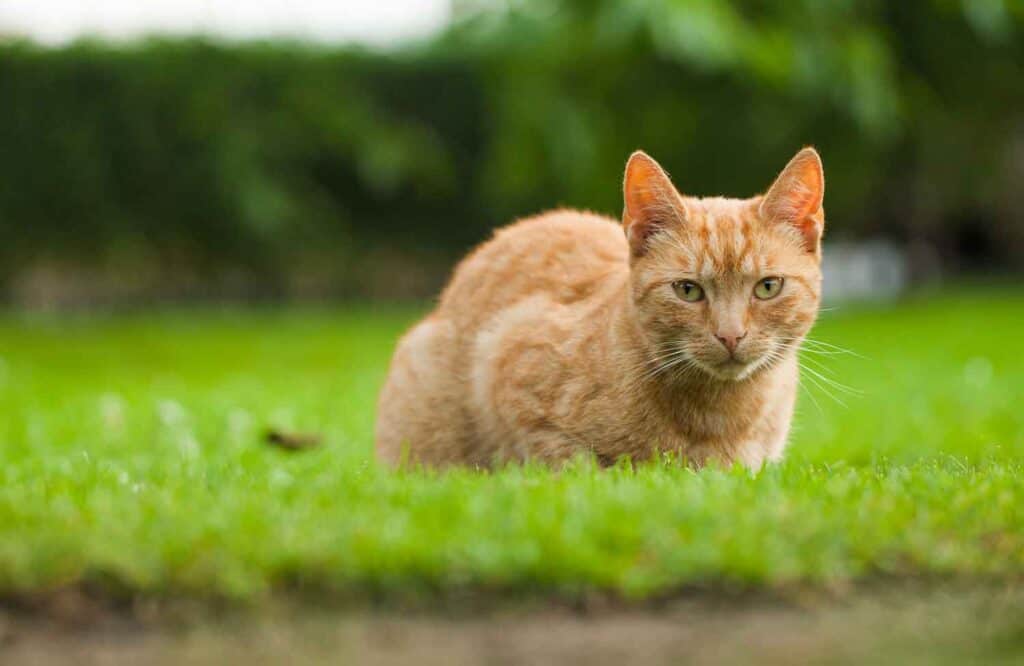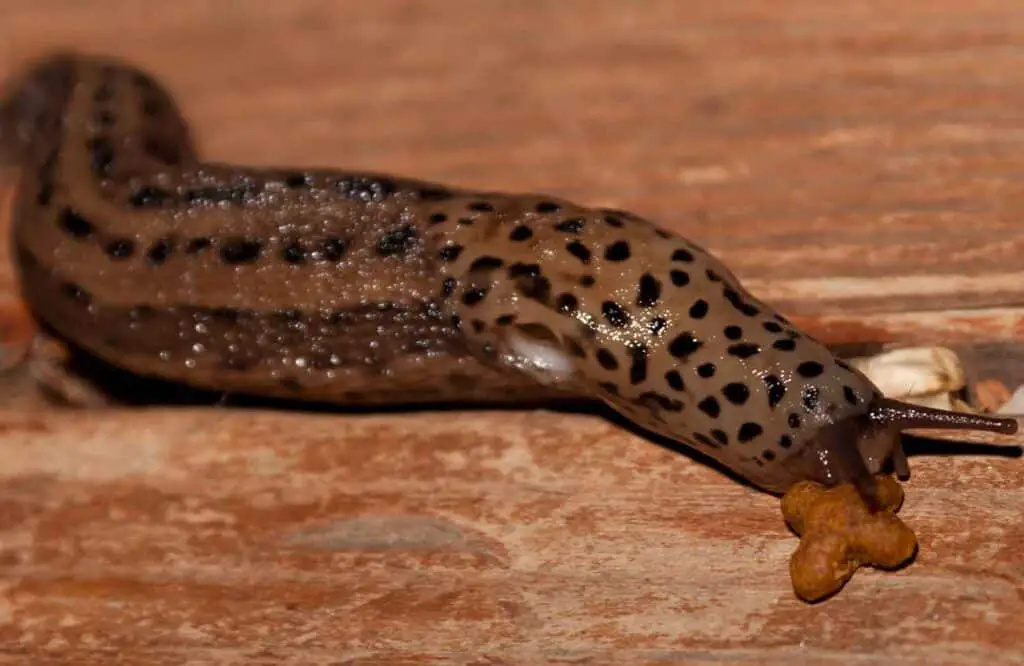Are Slugs Poisonous to Cats?
Cats are adventurious creatures and can often be found exploring their environment, which sometimes includes the slimy trails of slugs. While it is not likely that your cat would eat a slug, accidents can happen. So, are slugs poisonous to cats?
The short answer is no, slugs are not generally considered to be poisonous to cats. Slugs can carry a type of parasite called lungworms, which can cause respiratory problems in cats if ingested. However, this is rare and most often occurs when cats eat large numbers of slugs or other animals that carry the parasites.
Slugs: Do They Harm Cats?
Slugs can be hazardous to cats even if they are not poisonous to them. Lungworm parasites, which cats may develop if untreated, are known to be carried by slugs.
In some situations, these parasites might result in hospitalisation and even death.

In addition, cats may drool or vomit because to the mucous that slugs create. It is crucial to take preventive steps and keep an eye out for signs of slug poisoning if we want to protect our cats from the risks posed by slugs.
Can a Cat Get Sick from Eating a Slug?
No, consuming a slug by itself won’t make your cat unwell. However, because slugs can harbour the parasites, they could still be at danger of contracting lungworm infection.
Being aware of the dangers and taking precautions to safeguard your cat are essential given that the lungworm is a potentially fatal parasite.
It’s crucial to avoid cats from regularly consuming snails and slugs as doing so increases their chance of catching lungworm. Slugs that have swallowed insecticides or other chemicals may also be hazardous and ought to be prevented at all costs.
Is Slug Slime Dangerous to Cats?
Slugs are not dangerous to cats, but their slime still poses a risk to your pet. Cats exposed to slug mucus may drool, vomit, or exhibit other discomfort-related behaviours.
When your cat comes into touch with slugs, it’s crucial to keep a watch on them and to rapidly wash their fur. If your cat consumes the slime, keep an eye out for any symptoms of distress.
What Are the Signs of Cat Slug Poisoning?
Slugs are not poisonous, yet there are still risks involved. A parasite called a lungworm, which can cause a variety of symptoms, may be acquired by a cat via eating a slug.
Coughing, weight loss, diarrhoea, vomiting, and fatigue are a few of these symptoms. A cat may get anaemia or seizures in more severe situations.
Get in touch with your veterinarian right away if you think your cat may have been poisoned by a slug.
What to do if My Cat Eats a Slug?
The first thing you should do if your cat eats a slug is keep an eye out for any symptoms of disease.
Watch for any symptoms that might be related to slug poisoning because slugs can transmit parasites and other microorganisms that could harm cats’ health.
Take your cat to the vet as soon as possible if they begin to exhibit symptoms of vomiting, diarrhoea, or lethargy. Additionally, there are several therapies that might lessen the possibility of contracting lungworm infection as well as other potential health problems related to eating slugs.
Are Slugs Attracted to Cat Food?
Yes, slugs are often attracted to cat food and can be a real nuisance in gardens where cats live. To prevent the presence of slugs, make sure that all of your cat’s food is securely stored away or disposed of properly.

Slugs can be found in cat bowls and dishes, so it is important to make sure that they are cleaned on a regular basis. This will help reduce the chances of your cat consuming slugs or their parasites.
What Extermination Techniques Work Best for Slugs?
Slugs may not be harmful to cats, but they nevertheless pose a threat in other ways. As a result, it’s critical to take action to eradicate slugs from your garden.
The best ways to get rid of slugs include employing copper barriers, beer traps, and encouraging natural predators.
One of the simplest and most efficient ways to get rid of slugs is to use beer traps. Simply pour some beer into a shallow container, bury it, and wait for the slugs to come and drown. You may also get rid of slugs in your garden by letting natural predators like frogs, birds, hedgehogs, and even ducks do the job for them.
Finally, copper barriers can aid in preventing slugs from getting near your plants. Slugs are deterred from approaching your plants by a minor electric shock that copper produces when it combines with the slime they create.
What Types of Slug Poisons Exist?
Fortunately, cats rarely eat slugs, thus slug poisoning is uncommon in cats. There are several poisons available for anyone worried that their cat might eat a slug.
These poisons are often made with a substance like iron phosphate or metaldehyde, which are intended to be fatal to slugs and snails.
It is crucial to use these poisons carefully and in accordance with the manufacturer’s recommendations because they can be harmful to other animals, including cats.
Slug and snail poisons are not a long-term solution for slug management, therefore it’s preferable to use alternative techniques to keep slugs out of your house and garden instead.
Can I Treat My Cat’s Slug Poisoning With Medicine?
Although there isn’t a specific drug to treat cat slug poisoning, it’s still crucial to get your cat to the doctor right away if you think they may have eaten a slug.
It is essential to go to the vet straight away if you observe any signs of slug poisoning, such as vomiting, diarrhoea, or lethargy. The veterinarian might be able to provide your cat supportive care and medication to make him feel better.
Your cat might need to be treated at a hospital if they have a serious infection. By managing the slug population in your garden and keeping an eye on your pet when they’re outside, you can also stop your cat from consuming any more slugs in the future.
